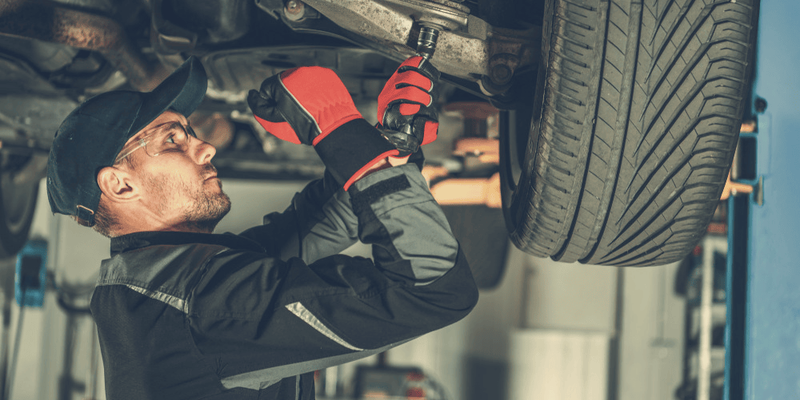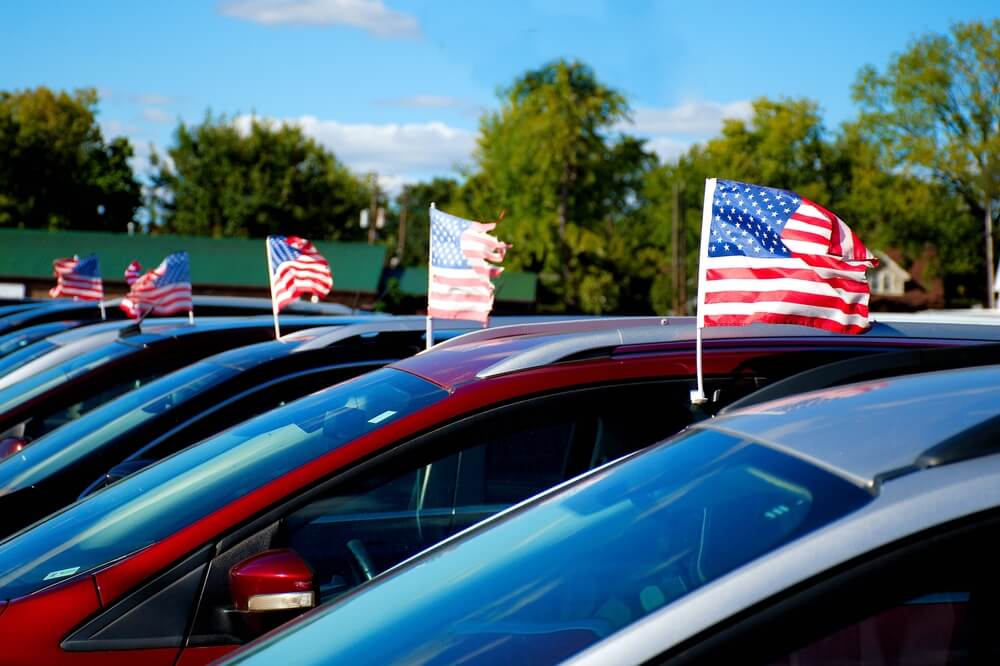
If you are not redirected within 30 seconds, please click here to continue.
Samedi: 10h – 16h HAE

If you are not redirected within 30 seconds, please click here to continue.
If you are not redirected within 30 seconds, please click here to continue.
In what situations can your car warranty become void?

This article has been updated from a previous version.
When you purchase a new or certified pre-owned vehicle from a dealership, it comes with a warranty. This warranty protects your car from expensive repairs caused by manufacturer errors or faulty components.
Depending on the conditions of your warranty, it’s usually valid for one to five years after purchasing the vehicle or until you drive it for 60,000 kilometers.
It’s important to note that a warranty covers damage from collisions that are caused by manufacturer defects, like a brake failure. But it doesn’t cover damage from at-fault collisions — like bumping into another car — or caused by other reasons like a tree falling onto the hood of your car.
What are the different kinds of car warranties in Canada?
Let’s delve into the three primary types of car warranties:
Standard warranties
These warranties typically last for a specific period (e.g., three years) or until you reach a certain mileage (e.g., 60,000 km). Ideal for drivers who don’t anticipate extensive travel or plan to trade in their vehicle before the warranty expires.
Service warranties
Commonly associated with new cars, service warranties cover various components, including brake pads and oil changes. Some Certified Pre-Owned (CPO) programs also include service warranties as incentives. Occasionally, you might find a slightly used car with an intact service warranty.
Extended car warranties
These warranties extend coverage beyond the basic warranty. Typically available for used vehicles, they offer peace of mind after the standard warranty period ends. Coverage duration varies (usually three to five years) based on the provider and plan.
While your factory warranty is typically included in the car’s price, obtaining extended warranties can cost you approximately $1,000 or more, depending on factors such as the vehicle’s make, model, and coverage level. Prices for car warranties vary based on the type and coverage.
Having a warranty means you won’t lose sleep over hefty repair costs. If the warranty is transferable, it can even enhance your car’s resale value. Before deciding, assess the cost and terms to ensure it’s a worthwhile investment.
Related: Why your new car’s headlights cost $6,500 more than your old car’s headlights
Situations in which your warranty can become void
For your car warranty to remain valid, there are certain conditions that the owner must adhere to. Violating these conditions could result in your warranty claim being denied or your entire warranty being deemed void.
Let’s look at some of these situations.
Aftermarket alterations
Modifying your car or installing aftermarket components won’t necessarily void your car’s warranty. However, any damage caused to other parts, like the wheels or alloy while upgrading tires, will not be covered.
Further, if you are replacing parts of your vehicle, make sure that you’re using Original Equipment Manufacturer (OEM)-certified parts. OEM parts are either made or approved by your vehicle’s manufacturer.
Altering your car’s record or odometer is also illegal and doing so will make your car’s warranty void.
Improper maintenance
Every car has a recommended maintenance schedule outlined in the owner’s manual and failing to adhere to these guidelines may void your warranty. It’s also important to ensure that you’re servicing your car with the proper fluids, like oil, coolants, and fuel. For instance, any damage caused to your vehicle by using the wrong fuel won’t be covered by your warranty.
When servicing your vehicle, it’s helpful to keep all service records and receipts to prove that you have followed the maintenance guidelines suggested for your vehicle.
Related: Amid inflation and supply chain shortages, should you delay vehicle repairs?
Misuse of vehicle
Violating regulations on the proper use of your vehicle, for instance, by using it for off-road racing or towing loads that your car isn’t authorized to tow can lead to your car’s warranty being deemed void.
Environmental disaster
While a natural disaster isn’t in your control, any damage caused to your car by a fire, tornado, flood, or earthquake may make your car’s warranty void.
Total loss
After a severe collision, a vehicle is given a salvage title if the cost to fix it exceeds or is equivalent to the vehicle’s market value. Repairs on a car after total loss tend to be around 60 to 90% of the vehicle’s total value, which are not covered under warranty. If a vehicle is given a salvage title, its warranty will be void.
That’s where auto insurance would come in.
What’s the difference between your car warranty and your car insurance?
For starters, car insurance is mandatory to have whereas a warranty isn’t. They both offer two different forms of protection for your vehicle.
A car warranty covers mechanical issues and labor due to defects or faulty parts, while car insurance pays for repairs after collisions, natural disasters, fires, or theft. Manufacturers negotiate warranties, whereas insurers handle insurance.
Read more: Does your car insurance policy include collision and comprehensive coverage?
Do you have to get your car serviced at your dealership to keep the warranty?
You don’t need to get your car serviced at your dealership to keep the warranty. Canadians are protected by the Consumer Protection Act which allows them to get their vehicle serviced at any certified repair shop of their choice.
“Preserving the warranty means ensuring those components are repaired and maintained the way a dealership would,” explains Stefan Tirschler, vice president of technology and innovation at Royal Claims Services Limited.
“Within Canada, as long as you adhere to the required service under the terms of your warranty or as outlined by the car manufacturer, using a different provider does not make the warranty void,” he adds.
While you’re not obliged to get your car repaired at the dealership, make sure that your third-party provider meets the requirements of skill and reliability. As long as this provider is certified, you don’t need to service your car at a dealership to keep its warranty for its specified duration.
Read next: How much do you need to make to afford a used car in Ontario?
Don't waste time calling around for auto insurance
Use Rates.ca to shop around, and compare multiple quotes at the same time.
Get money-saving tips in your inbox.
Stay on top of personal finance tips from our money experts!










